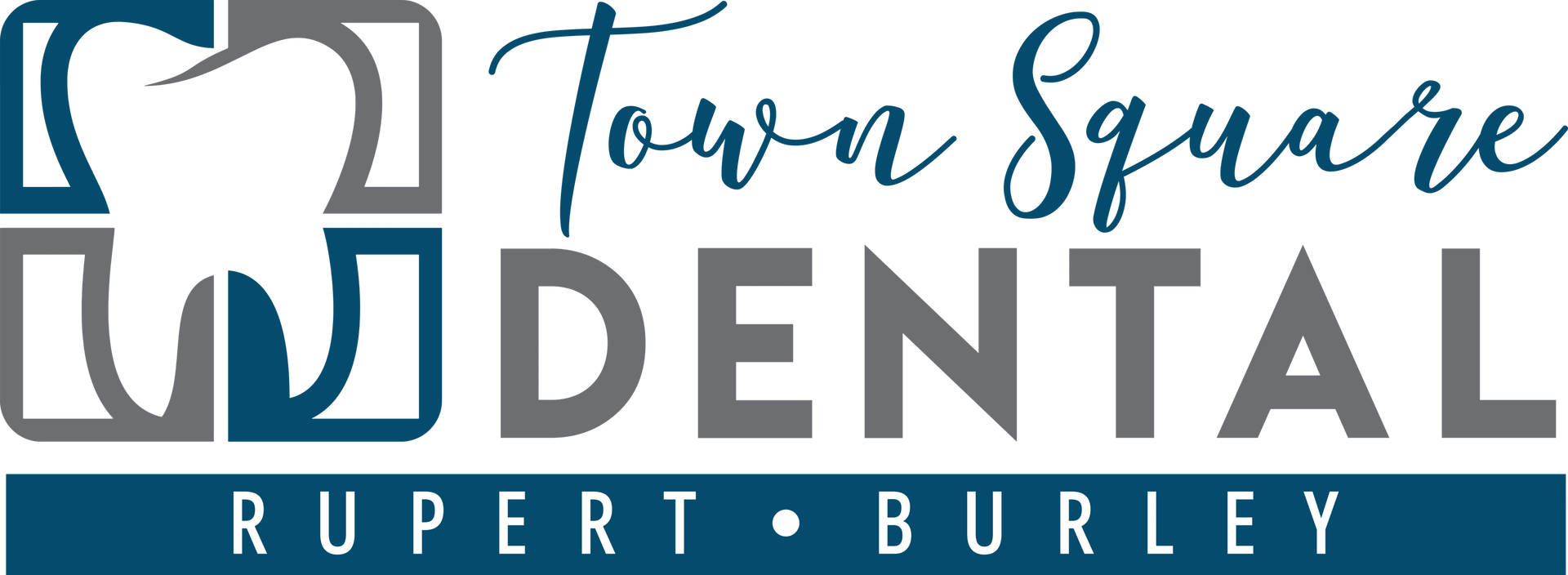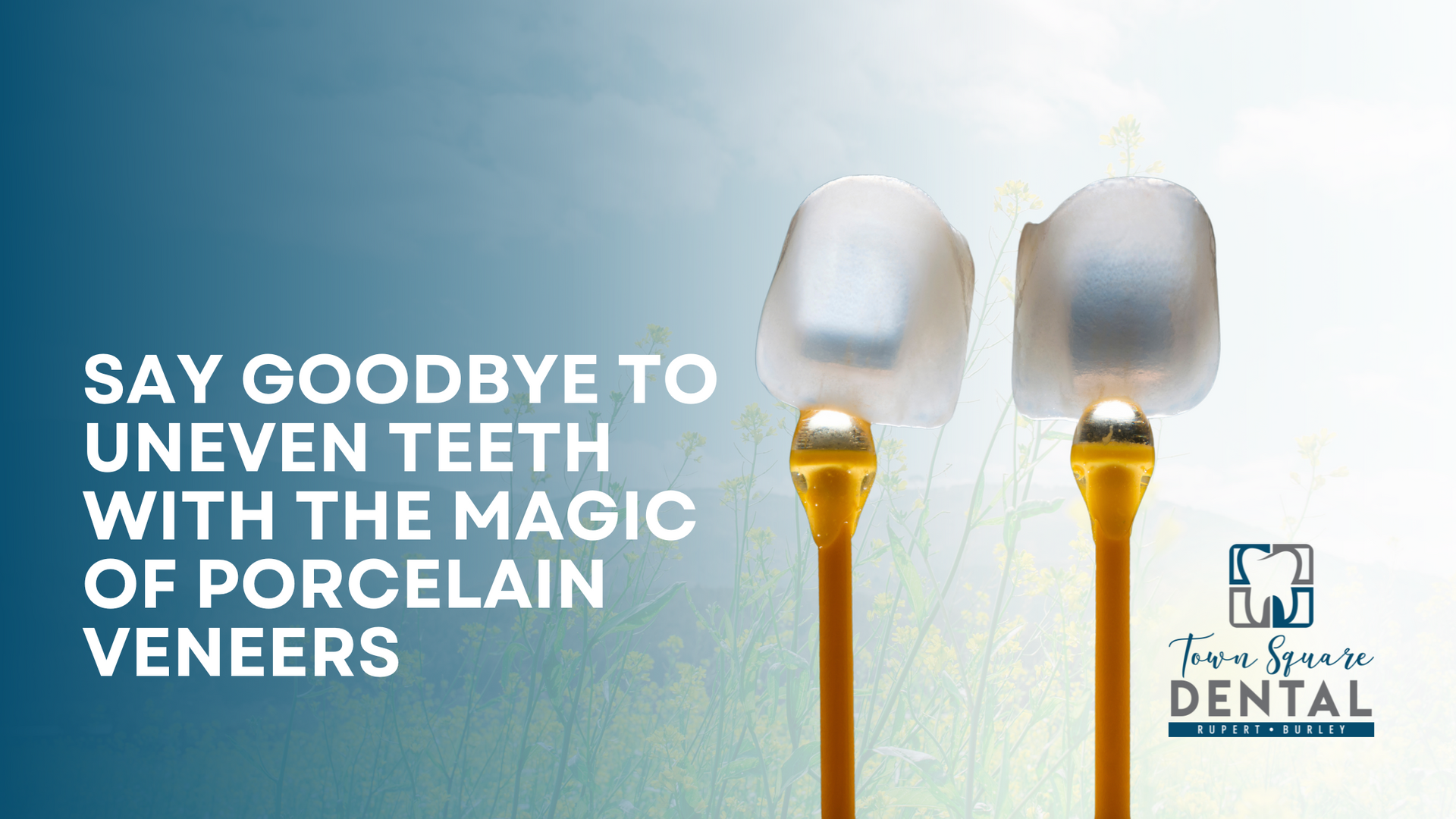Rupert and Burley Dentistry
We understand that trying to find a nearby dentist you can trust is difficult, that is why we make it easy for you to work with us.
Rupert
(208) 436-4747
rupert@townsquaredentalidaho.com
502 8th St, Rupert, 83350, Idaho
Burley
(208) 678-5597
burley@townsquaredentalidaho.com
1010 East Main St, Burley, 83318, Idaho
Common Dental Problems and Effective Treatments in Idaho
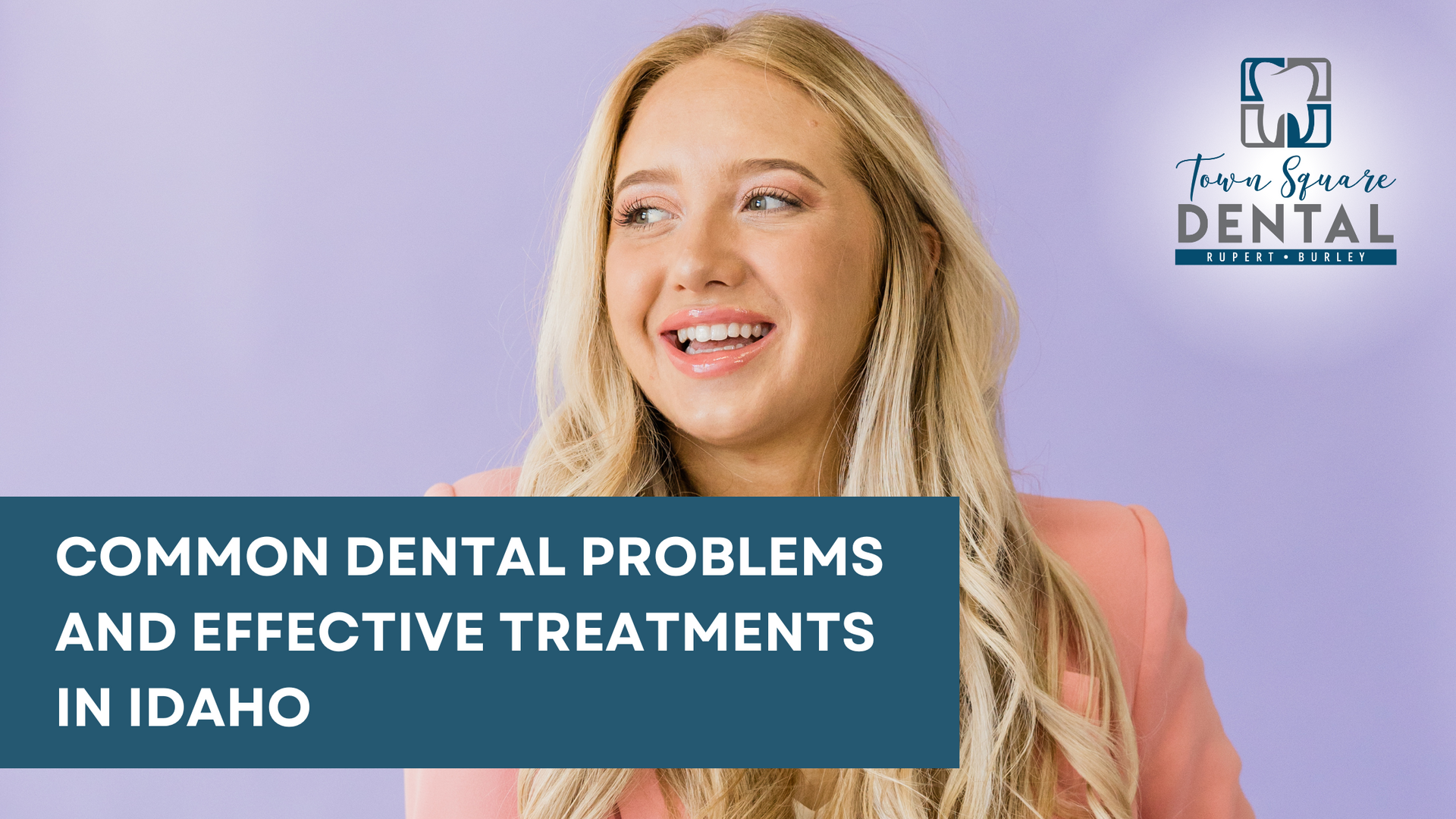
Source: Dr. Marketing
Patients can encounter several dental issues, whether that is pain, bleeding, or a broken tooth, and they must react quickly and smartly. For every dental condition that unexpectedly occurs, there is a viable solution. Our team at Town Square Dental, which is located in Rupert, Idaho and Burley, Idaho, has summarized the most common dental conditions and what you can do in response to each.
Help! I Am Experiencing Dental Pain

Cavities
Decay can create a hole that forms in your tooth. Although they are initially small, cavities become enlarged over time if they are left untreated. Many patients won't experience discomfort in the early stages of a cavity, so they will not realize that there is an issue with their oral health. One solution to dental decay is a tooth filling, which is when our dentist utilizes a drill to remove decayed material from a tooth. Then, he or she will fill your tooth with a substance (silver, gold, or composite resin). After tooth decay results in the death of your nerves, our dentist must perform a root canal to save the tooth. First, the nerve tissue, blood vessel tissues, and decayed areas of your tooth are removed. Before filling the tooth, our dentist examines the mouth for infections and then applies medication to the roots if necessary.
Impacted Wisdom Teeth
Your wisdom teeth, which are the third set of molars in the back of your mouth, can cause issues, including discomfort, swelling, redness, oral infections, cavities, shifting teeth, or an affected tooth. The dentist can extract wisdom teeth and reduce the risk of experiencing such complications.
Temporomandibular Joint Disorders (TMJ)
This refers to several health conditions that occur around your jaw (the temporomandibular joint connects your lower jaw to the skull). These disorders can leave you with tenderness at the joint, facial discomfort, and struggles when attempting to move the joint. A dentist can recommend Botox injections, which are often used for patients with painful trigger points or constant teeth grinding. You can also benefit from wearing a mouth guard to prevent teeth grinding, home treatment (eating soft foods, using ice to limit swelling), and certain medications (muscle relaxers, nonsteroidal anti-inflammatory drugs).
Help! I Am Experiencing Dental Bleeding
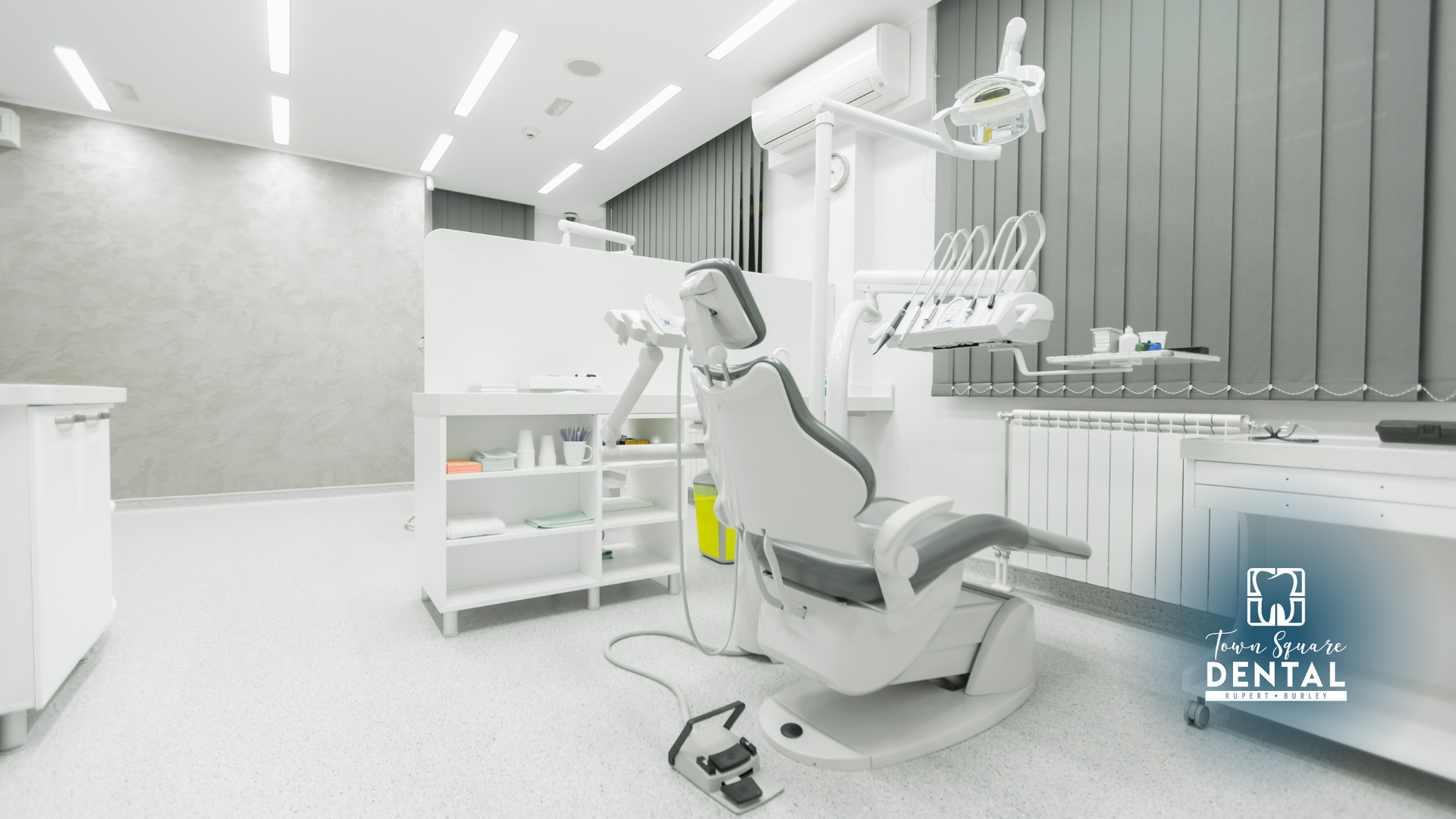
Gum Disease
Gum disease can cause your gums to become red, swollen, or tender. Eventually, if they are left untreated, they will experience bleeding whenever you brush or floss your teeth. Good oral hygiene practices will help you avoid gum disease, but our dentists in Rupert and Burley can assist with a deep cleaning of your teeth, antibiotic medications, and surgery options if the situation worsens.
Help! I Am Experiencing Bad Breath
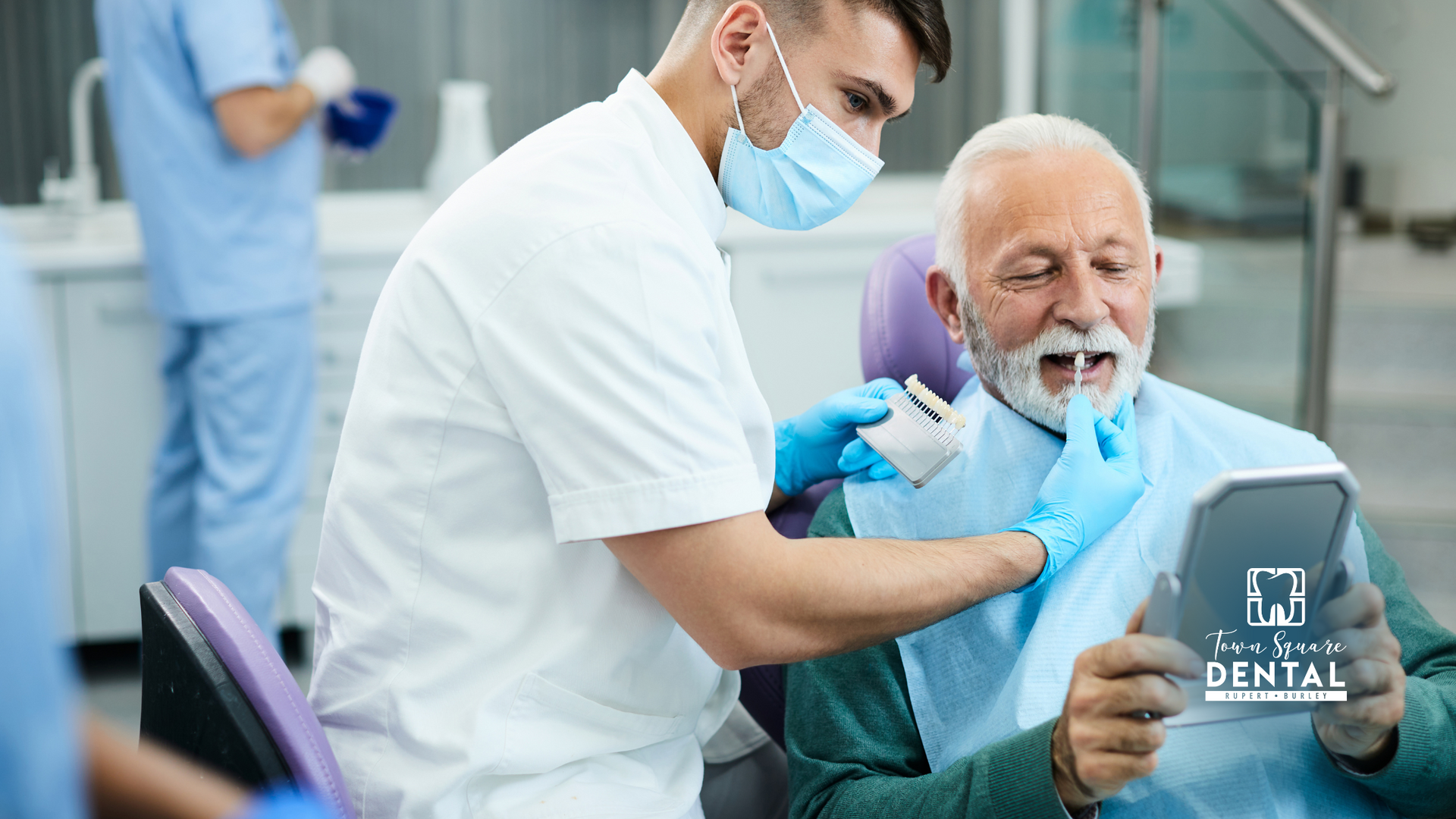
Chronic bad breath (halitosis) can be the result of the following. If you are experiencing bad breath, improving your at home oral care routine should be the first step. If you do not notice an improvement, please schedule an appointment with us at Town Square Dental to identify the underlying cause and freshen your breath.
Improper Oral Care
Bacteria can combine with decaying food in your mouth to produce a bad odor. Brushing and flossing your teeth daily will help remove the food particles before they can decay. You can also use a tongue scraper to remove debris from your tongue and help freshen your breath.
Tooth Infection
A tooth infection can spread its effects to other areas, one of which is the state of your breath. Your dentist can prescribe antibiotics to treat this concern.
Help! I Have Yellow Teeth
If you notice yellow teeth, it can be the result of:
Smoking
Smoking tobacco products is one of the worst decisions you can make relating to your oral health, as it will rapidly yellow your teeth. You can resolve this issue by having your teeth whitened with a take-home product or at the dentist's office, though it is suggested that you choose the latter option. The tooth whitening at your dentist's office will have greater concentrations of the active ingredients for faster results, and your dentist can monitor the process through several appointments.
Certain foods
Several food products and beverages can leave your teeth yellow, such as tea, coffee, red wine, berries, fruit juices, carbonated drinks, energy and sports drinks, soy sauce, balsamic vinegar, tomato sauces, and candy. A dietary change is the best solution to this problem, and you can easily achieve this by eating foods that scrub and clean your teeth (carrots, apples, celery sticks, cucumbers, pears, lettuce, and cheese).
Help! I Have Misaligned Teeth

Overbite
An overbite occurs when the upper front teeth overlap significantly over the lower front teeth. This misalignment can cause difficulty in chewing, jaw pain, and the wearing down of teeth. Treatment options for overbites include braces, Invisalign, dental veneers, and, in severe cases, orthognathic surgery.
Underbite
In an underbite, the lower front teeth protrude beyond the upper front teeth, leading to difficulties in biting and chewing, speech issues, and jaw pain. Treatments for underbites often involve braces, Invisalign, jaw expanders, and occasionally surgery.
Crossbite
A crossbite occurs when the upper teeth bite inside the lower teeth, which can happen on one or both sides of the mouth. Symptoms include tooth wear, gum disease, and asymmetrical jaw growth. Treatment options include braces, Invisalign, palatal expanders, and potentially surgical intervention.
Open Bite
An open bite is characterized by the upper and lower teeth not touching when the mouth is closed, creating an open space. This condition can lead to difficulty in biting and chewing, speech problems, and tongue thrusting. Treatment typically involves braces, Invisalign, habit-breaking appliances, and in severe cases, surgery.
Spacing Issues (Diastema)
Diastema refers to gaps between teeth, which may cause aesthetic concerns and issues like food getting stuck. This condition is visibly noticeable as spaces between two or more teeth. Treatment options include braces, Invisalign, dental bonding, and veneers.
Crowding
Crowding occurs when teeth are bunched together or overlapping due to lack of space. This can make maintaining oral hygiene difficult and increase the risk of tooth decay and gum disease. Treatments for crowding include braces, Invisalign, tooth extraction (in severe cases), and dental reshaping.
Help! I Have Broken, Cracked, And Chipped Teeth
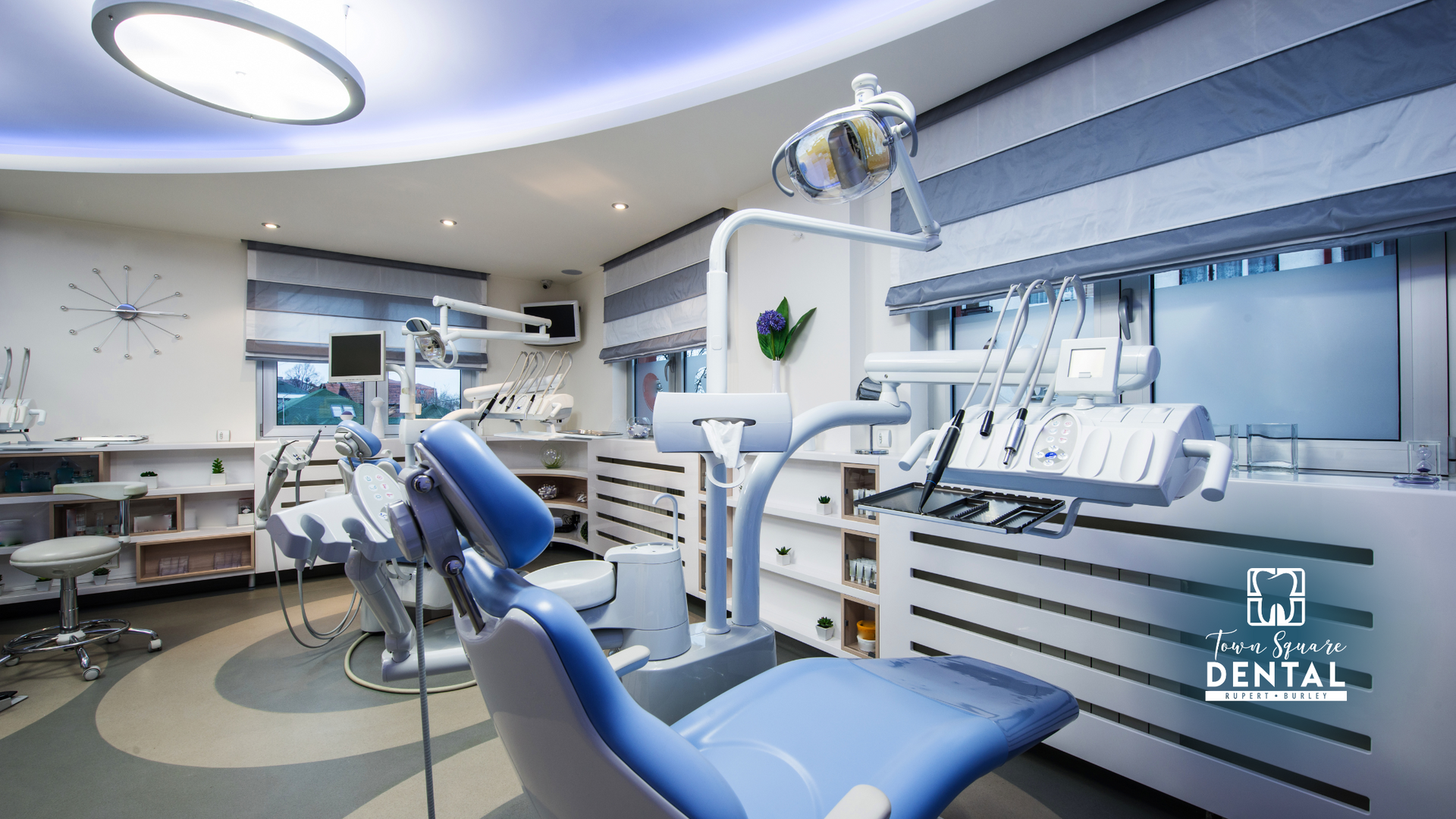
Broken Teeth
Broken teeth occur when a significant portion of the tooth is fractured or completely broken off. This type of damage can result from trauma, biting on hard objects, or extensive decay. Symptoms often include sharp pain when biting down, sensitivity to hot or cold, and visible pieces of the tooth missing. Broken teeth typically appear jagged and uneven. Treatment options include dental crowns to cover and protect the remaining tooth, dental bonding for smaller breaks, root canals if the pulp is damaged, and in some cases, dental implants if the tooth is beyond repair.
Chipped Teeth
Chipped teeth are characterized by minor fractures or small pieces breaking off the edges of the teeth. This can happen due to biting on hard substances, accidents, or weakened enamel. Symptoms usually involve rough edges on the tooth, minor discomfort, and sensitivity to temperature changes. Chipped teeth may look uneven or have a small portion missing. Treatment options for chipped teeth include dental bonding to fill in the missing piece, veneers to cover the chip and restore appearance, and in some cases, smoothing and polishing the chipped area if the damage is minimal.
Cracked Teeth
Cracked teeth can vary from minor cracks in the enamel to more severe splits that extend to the tooth’s root. Cracks may occur due to trauma, grinding teeth, or sudden temperature changes. Symptoms often include pain when chewing, sensitivity to hot and cold, and intermittent discomfort. Cracked teeth may not always be visible but can sometimes be seen as lines running vertically along the tooth. Treatment options depend on the severity of the crack and can include dental bonding to seal minor cracks, crowns to cover and protect the tooth, root canals if the crack extends to the pulp, and in severe cases, extraction if the tooth is beyond saving.
Missing Teeth
Missing teeth can result from various causes such as trauma, tooth decay, gum disease, or congenital absence. Symptoms include difficulty in chewing, speech issues, and a noticeable gap in the dental arch, which can affect the alignment of the remaining teeth and facial aesthetics. The appearance of missing teeth is characterized by visible gaps where teeth are absent. Treatment options for missing teeth include dental implants to replace the missing tooth with a prosthetic root and crown, dental bridges to span the gap between adjacent teeth, and dentures, either partial or complete, to restore functionality and appearance.

If you have any additional questions or concerns relating to typical dental conditions and their solutions, feel free to contact the friendly and knowledgeable team at Town Square Dental in Rupert, Idaho and Burley, Idaho by phone or email. We are confident in our ability to provide you with the information and solutions you need to address any issues you may have.

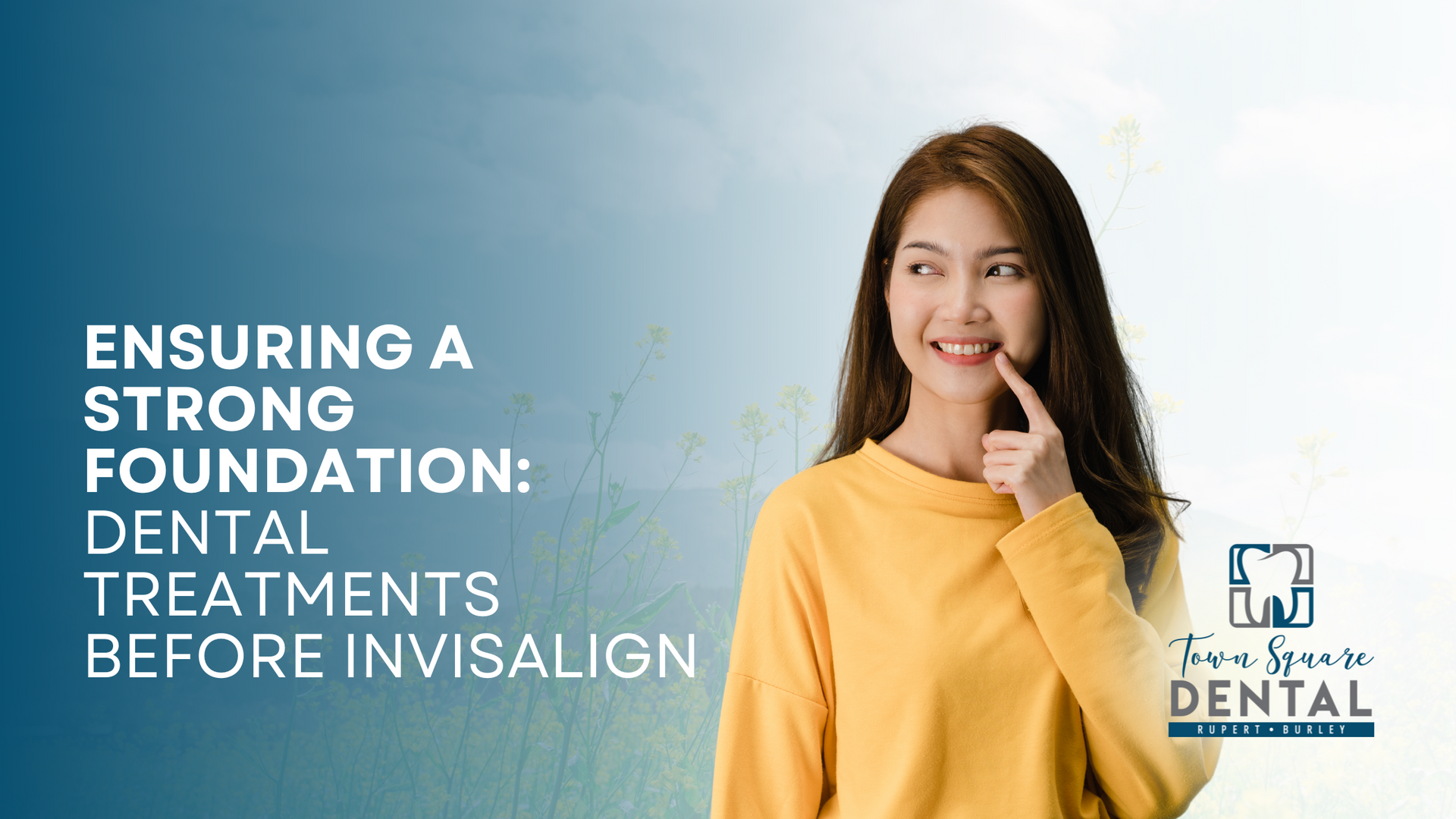
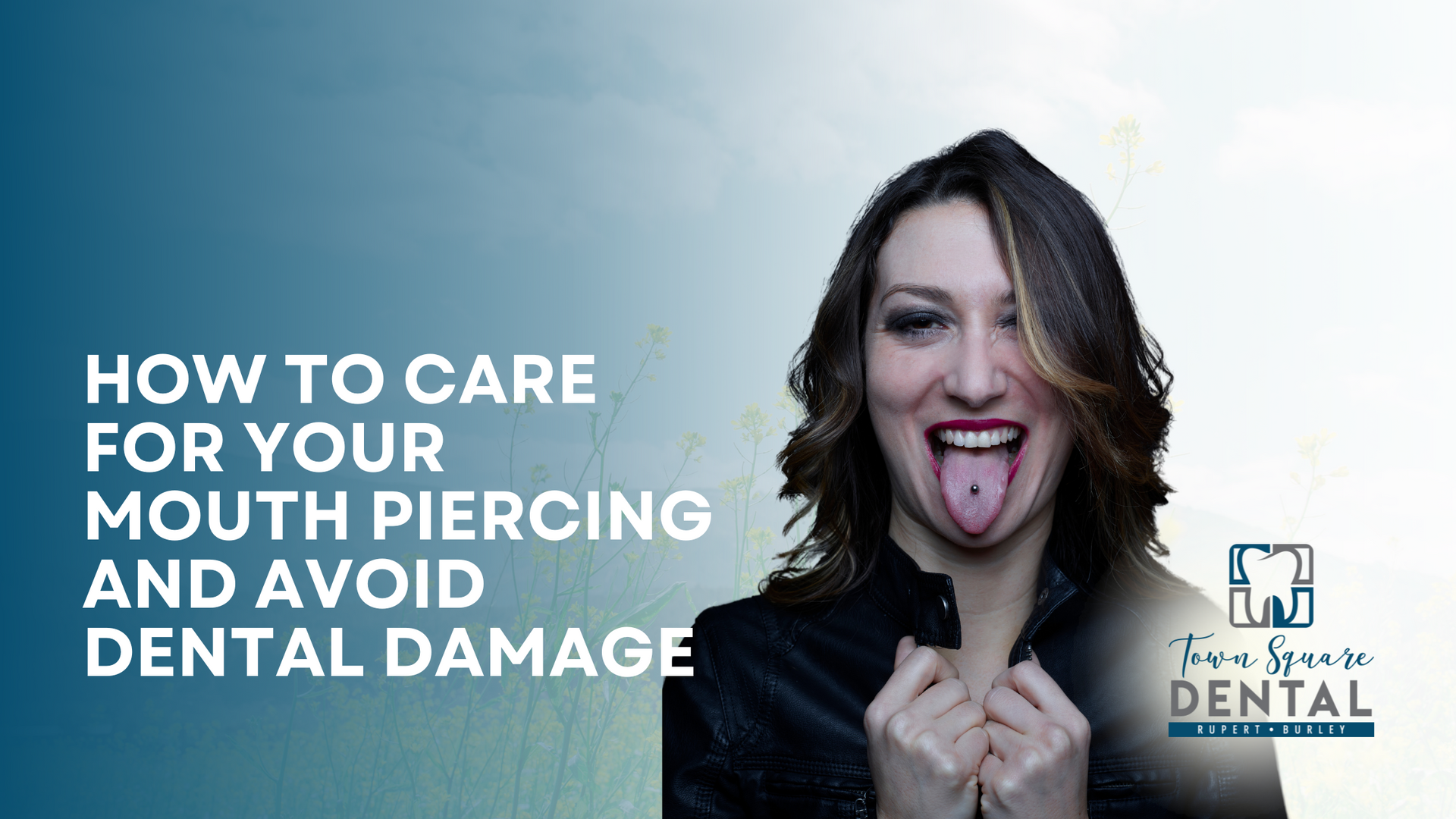

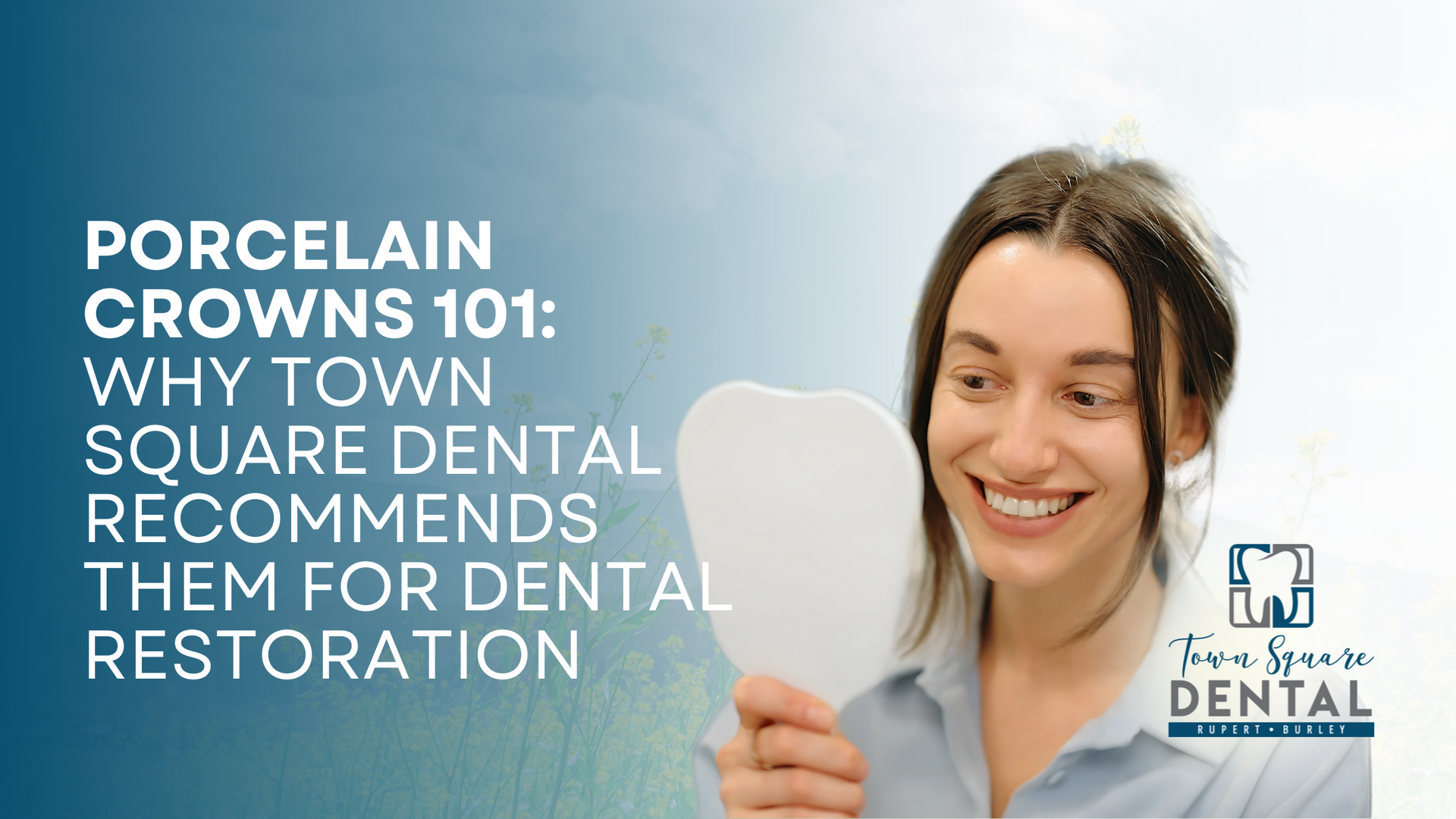
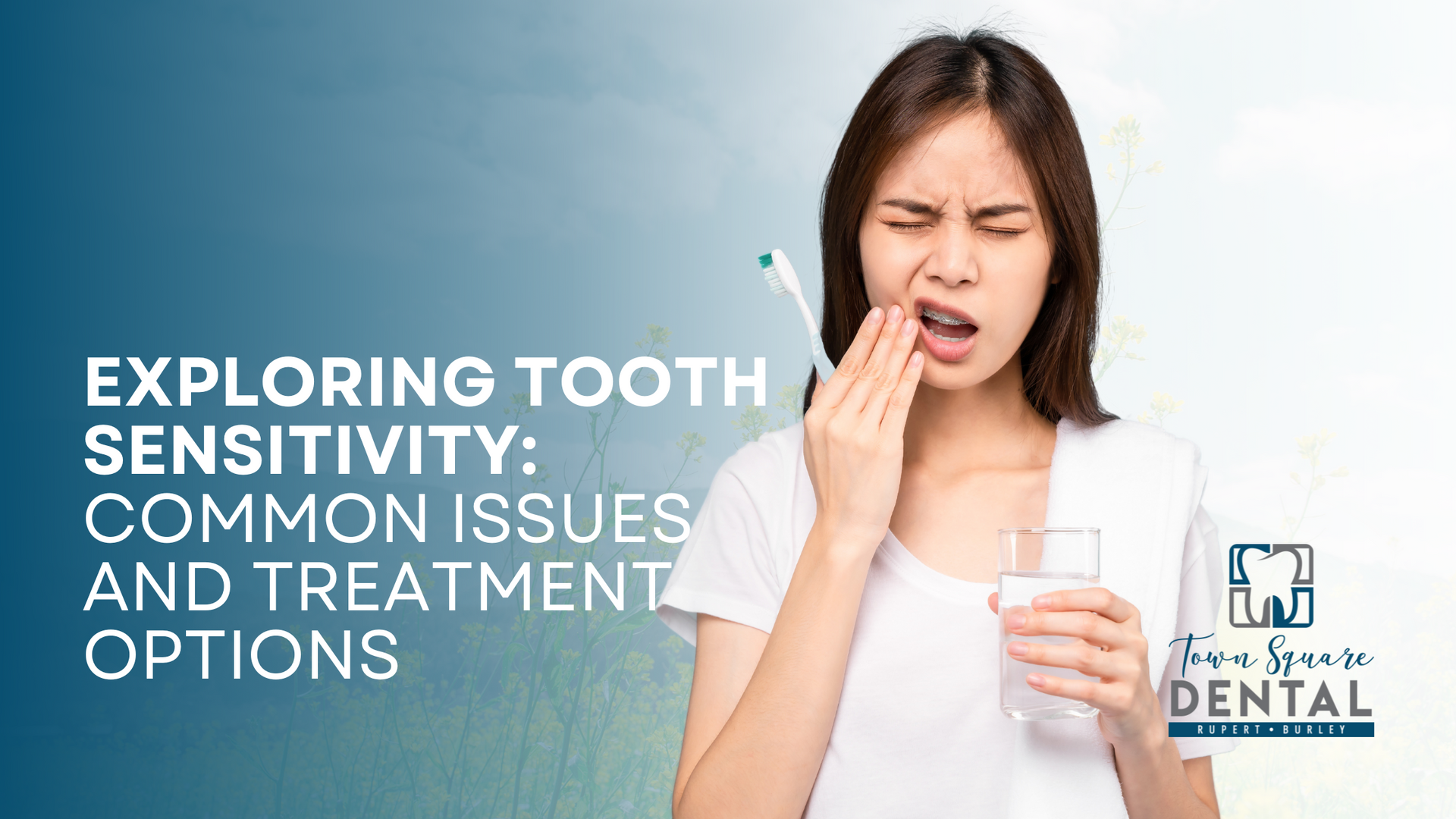
We are the local Rupert and Burley dentist near you!
It’s Your Smile, Let Us Help You Make It Your Best
Request A Dental Appointment
We look forward to seeing you soon!
Please note, we will try our best to accommodate your schedule.
Rupert - (208) 436-4747
Burley - (208) 678-5597
Regarding insurance, we accept most PPO insurances, but we are in-network with Delta and BlueCross of Idaho. As a courtesy to all of our patients (in/out of network), we take care of the claim filing and processing. We currently have financing options available for those patients who qualify.
Rupert Dental Office
Burley Dental Office
All Rights Reserved | Town Square Dental
All Rights Reserved | Town Square Dental
Dentist Website Diagnosed, Treated, and Cured by Dr. Marketing Inc
